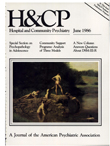TEAMS: Teamwork Training for Interns, Residents, and Nurses
Abstract
The problems identified and addressed by the TEAMS model are numerous and broad. They exist within an extremely complex systern of hospital-based health care and medical training. An early evaluation indicated that TEAMS has been successful in addressing these problems, but more groups will need to be run and a more sophisticated evaluation conducted in order to draw more thorough on objective conclusions. The POI's usefulness in assessing whether program goals have been met is being reevaluated. It may be advisable to conduct separate workshops for interns and less experienced nurses and for more senior residents and nurses. The success of the TEAMS program is due in large part to the departments of nursing and medicine at Evanston Hospital who were aware of these problems and were willing to address them.
Access content
To read the fulltext, please use one of the options below to sign in or purchase access.- Personal login
- Institutional Login
- Sign in via OpenAthens
- Register for access
-
Please login/register if you wish to pair your device and check access availability.
Not a subscriber?
PsychiatryOnline subscription options offer access to the DSM-5 library, books, journals, CME, and patient resources. This all-in-one virtual library provides psychiatrists and mental health professionals with key resources for diagnosis, treatment, research, and professional development.
Need more help? PsychiatryOnline Customer Service may be reached by emailing [email protected] or by calling 800-368-5777 (in the U.S.) or 703-907-7322 (outside the U.S.).



